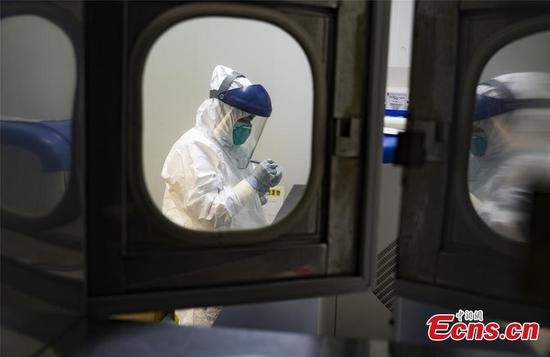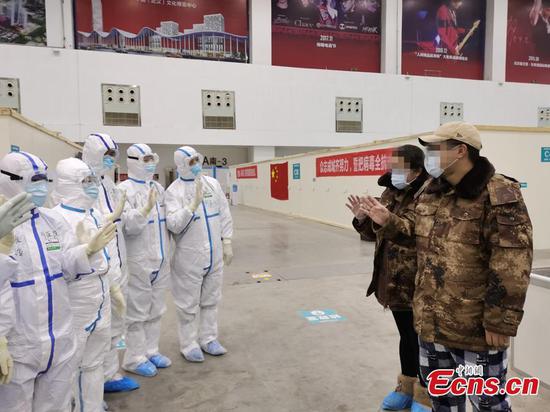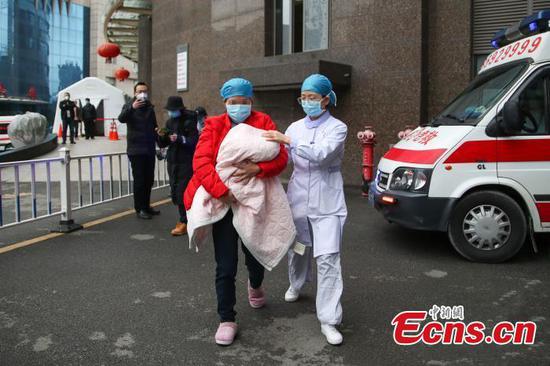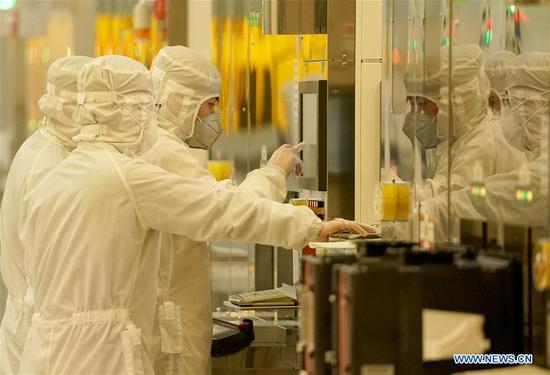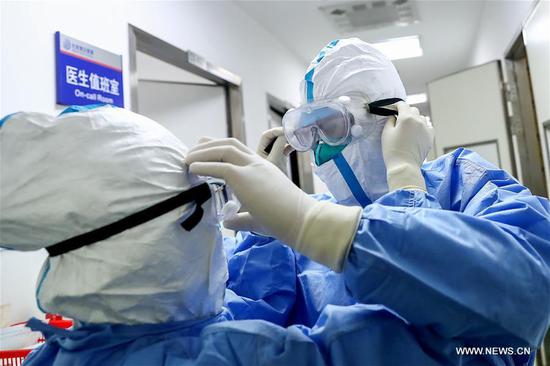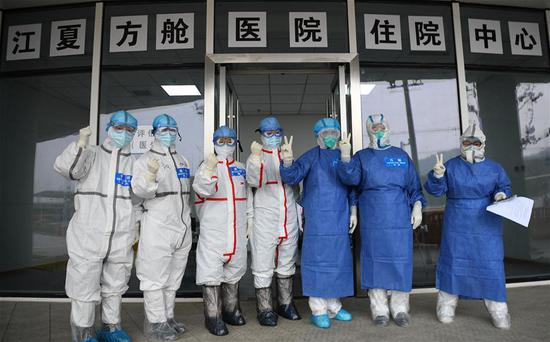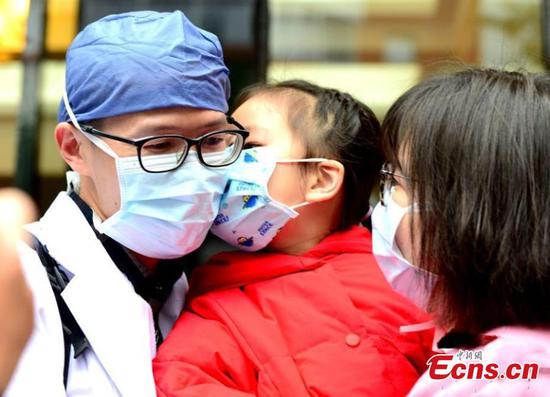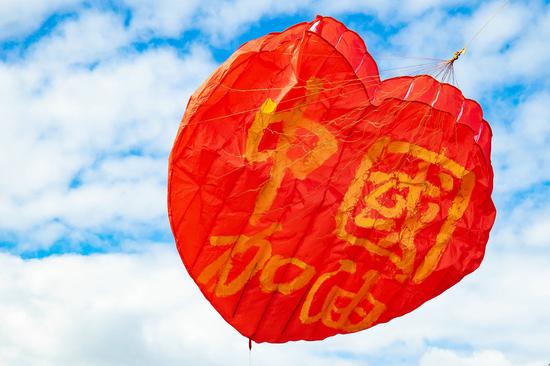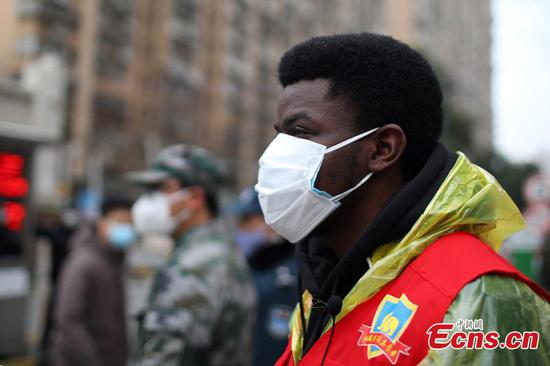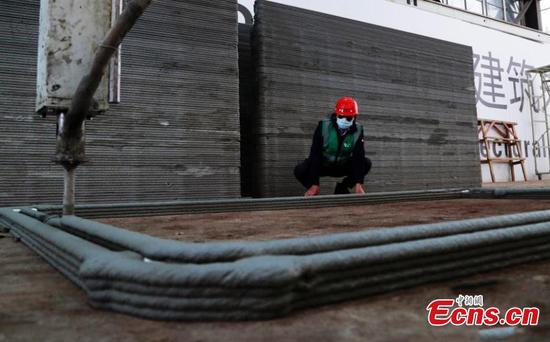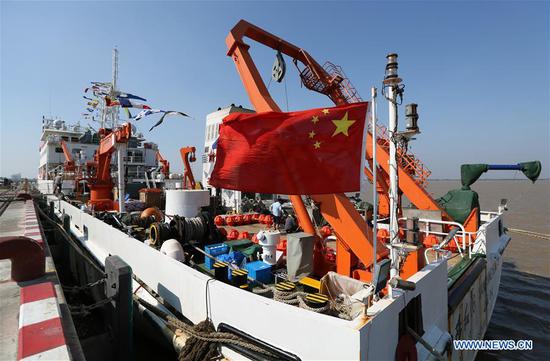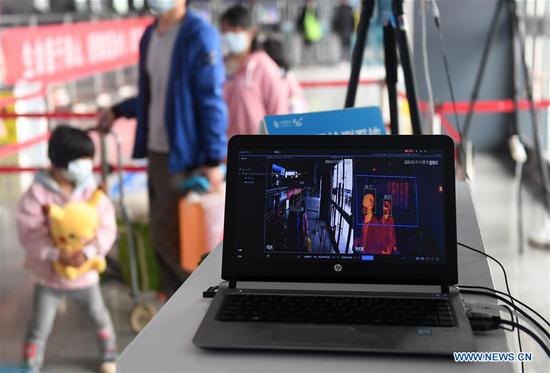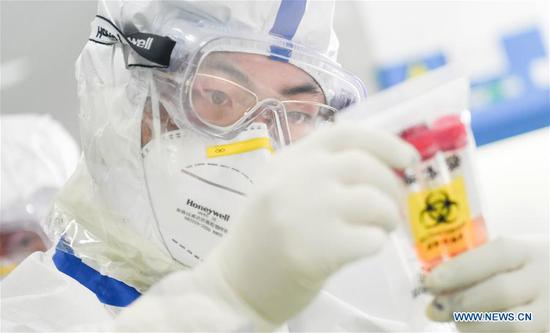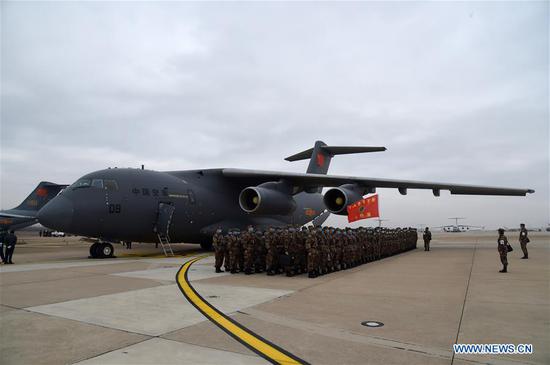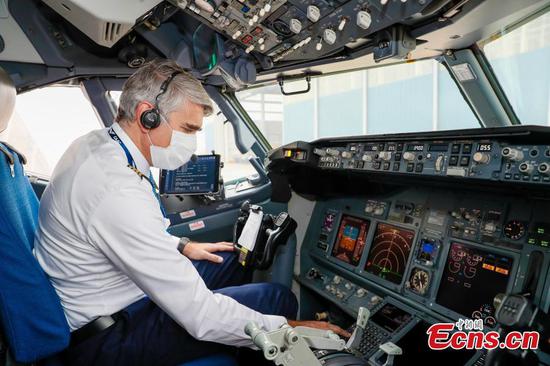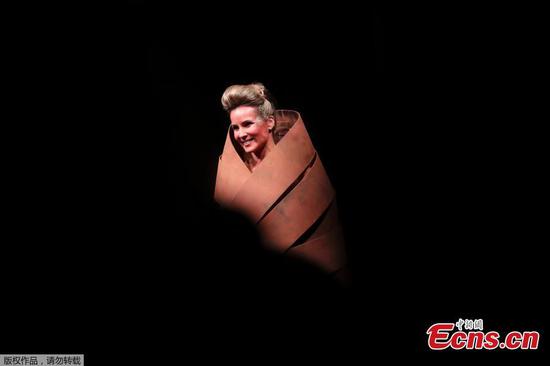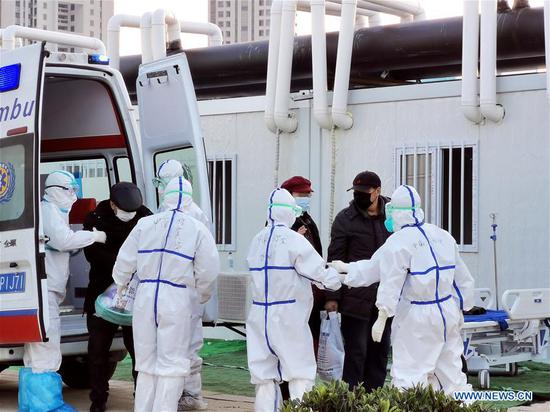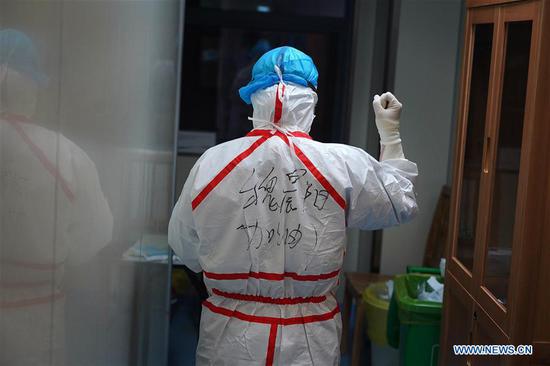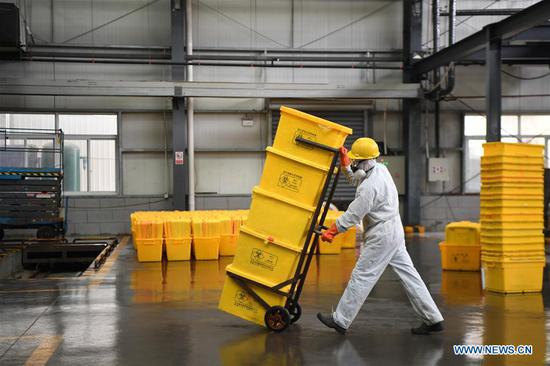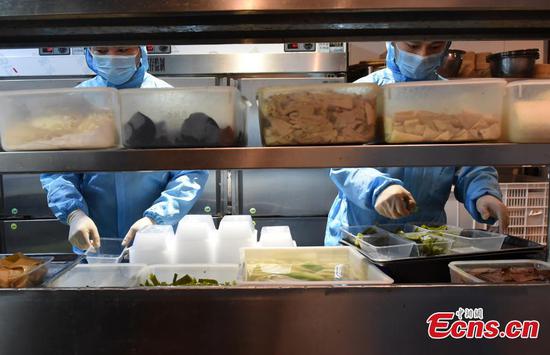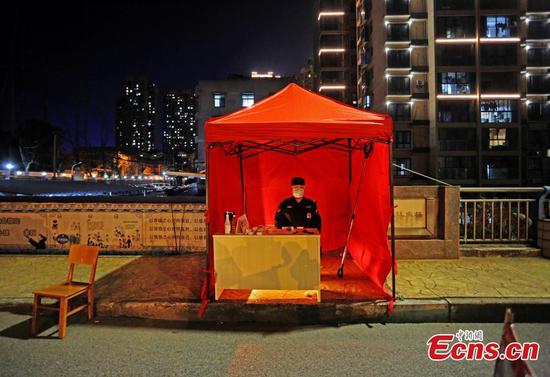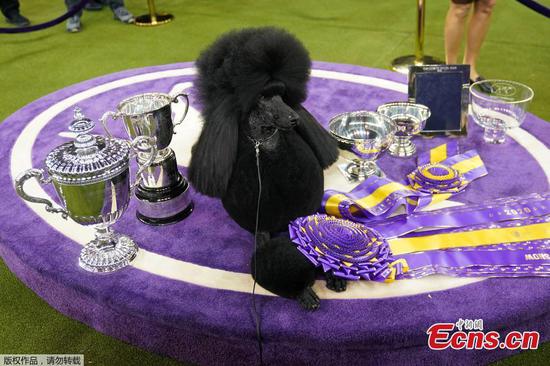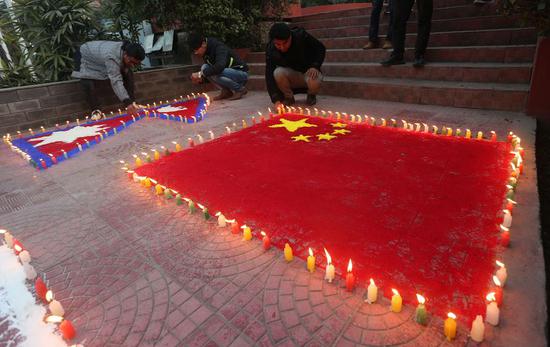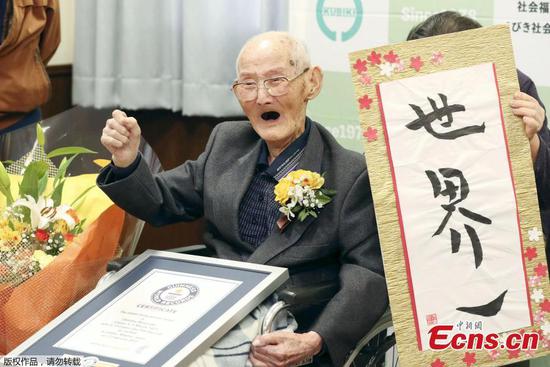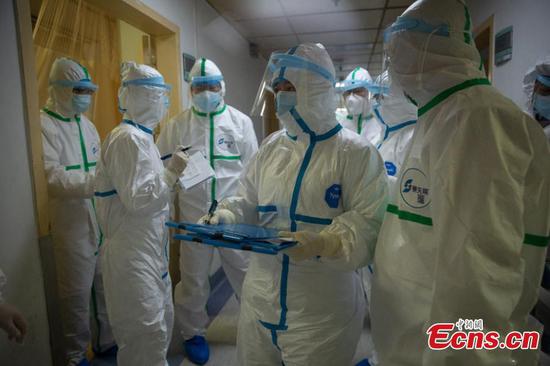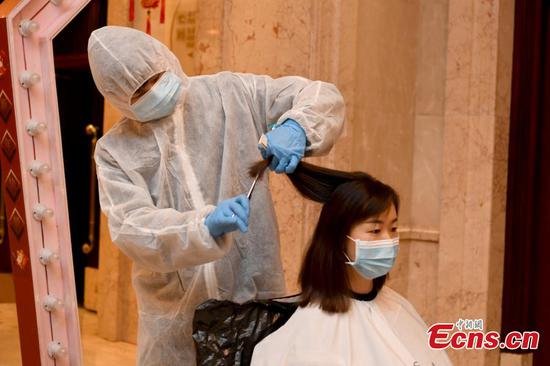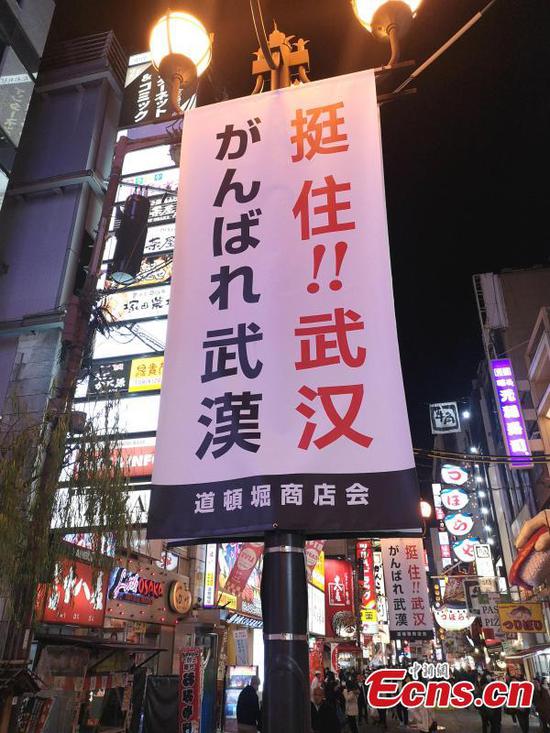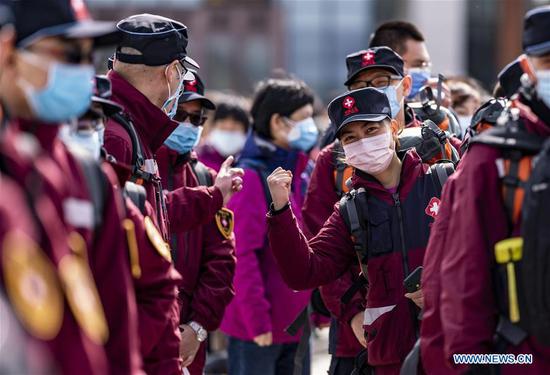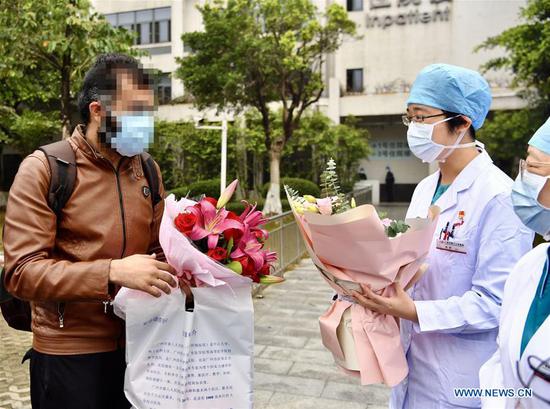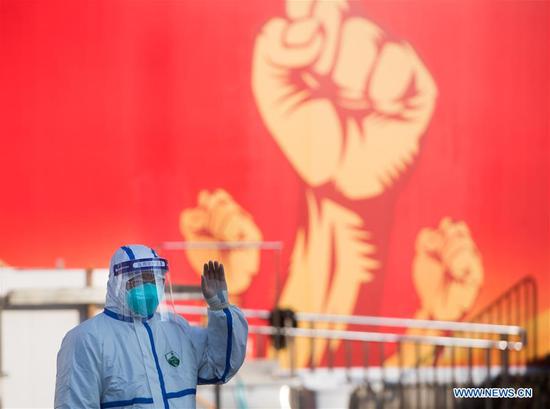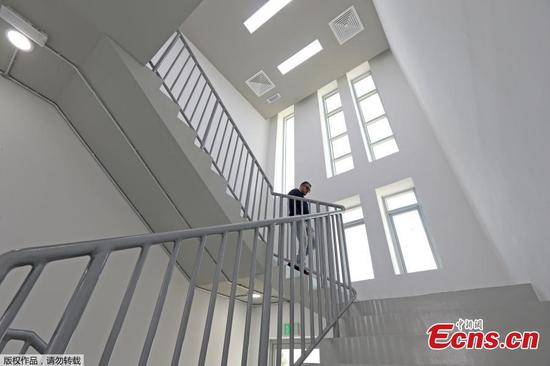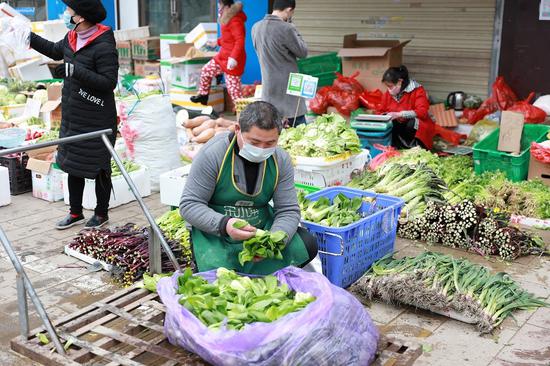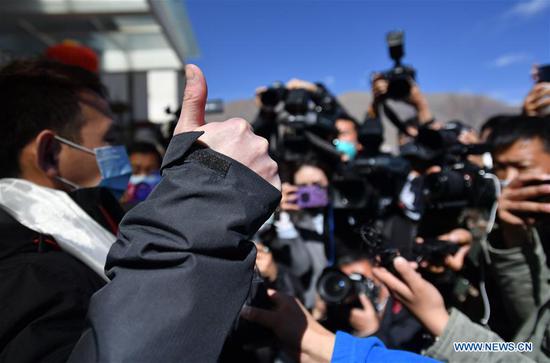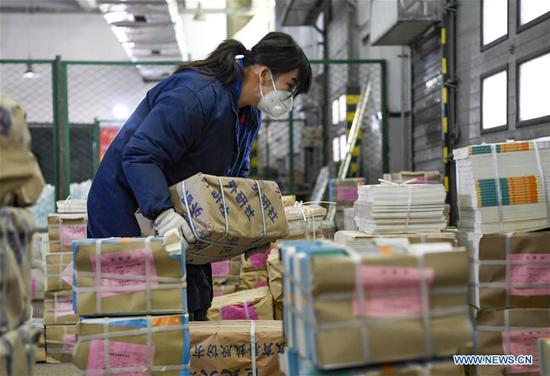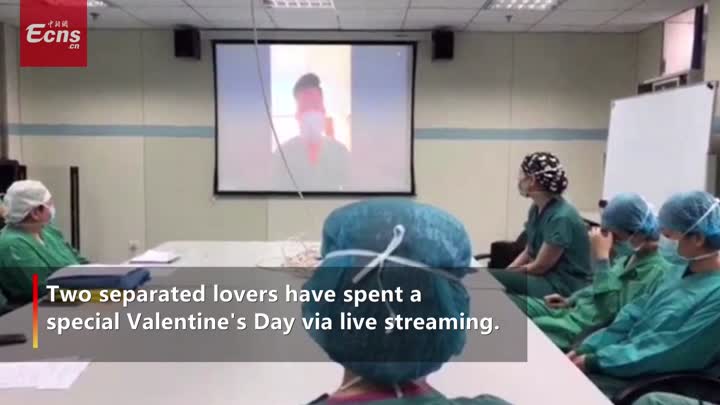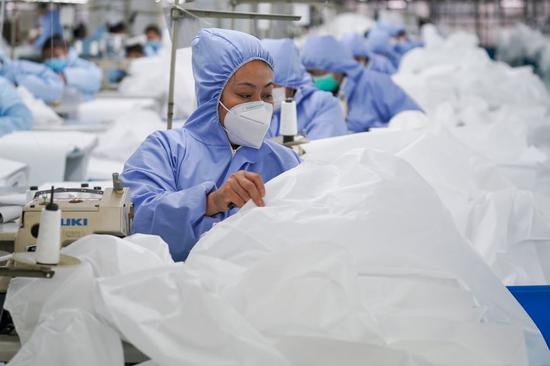
Workers make general protective suits at Hongdou Industrial Co., Ltd. in Wuxi, east China's Jiangsu Province, Feb. 8, 2020. (Xinhua/Li Bo)
Although the novel coronavirus outbreak is to have a temporary negative impact on the world's second-largest economy, Chinese companies have never given up hope of finding a way out of this dilemma and strengthening their immunity to the fallout.
Since the contagion coincided with the Spring Festival holiday, various industries in China, including catering, retail, manufacturing and tourism have been heavily impacted. Hotels, restaurants, shopping malls and tourist sites which should have been in full swing at this moment are actually quiet and empty.
As more and more workers have gone back to work since the extended holiday ended, domestic firms are racing to cut losses through their own efforts with the help of the government.
COMPANIES' RAPID ADJUSTMENT
Zhang Liqing is the owner of a restaurant that serves Chinese Huaiyang cuisine in east China's Jiangsu Province.
"People used to stand in a long line to wait for a table, especially during the Spring Festival. This year, however, we have already lost about 1 million yuan (about 143,000 U.S. dollars) due to the shutdown of the restaurant since the first day of the Lunar New Year," Zhang said.
Although the owner does not know when he can reopen his restaurant, he said he has to do something.
"I'm training my employees online and also learning new business models such as take-out food and non-contact orders. I think these measures will help me resist the damage of the epidemic in the future," Zhang said.
Due to the huge demand for medical materials during the outbreak, masks and protective outfits, in particular, some Chinese enterprises have accelerated their adjustment of production structure.
In the city of Wuxi, Jiangsu Hongdou Industrial Co., Ltd., a clothing maker, has pitched in.
"We transformed a factory into a workshop for disposable medical protective clothing and upgraded technologies to produce such products," said Gu Jinlong, executive vice president of the company.
The company completed its first general protective suit on Feb. 3 and its daily output has now increased to about 40,000 pieces. It is now waiting for the permission of the government to produce medical protective suits.
Shi Yun, 29, living in the city of Nanjing, found a new way to kill time since residents are suggested to stay home to avoid virus infections. She found that many shopping malls in Nanjing displaying their new products, including the latest collections of clothes online through group chats on WeChat or other apps.
"It feels like virtual window shopping," said Shi, who only needs to browse on her computer or mobile phone, instead of in a mall.
In order to pull through, brick and mortar retailers have been forced to run their businesses through social media platforms. According to He Huan, a manager at Deji Plaza, a Nanjing-based shopping mall complex selling luxury goods, the mall has set up various group chats based on commodity categories and even launched an online shopping app to cater to customers.
"So far, sales for cosmetics and fashion brands are satisfactory. We are willing to keep improving our online services," He said.









